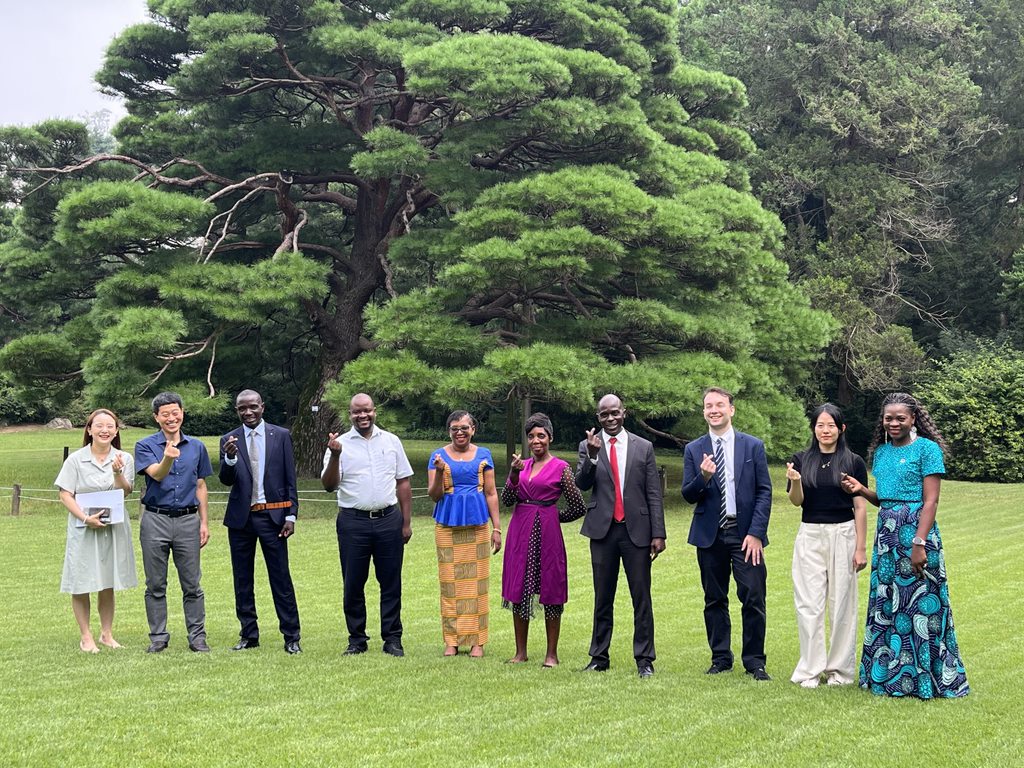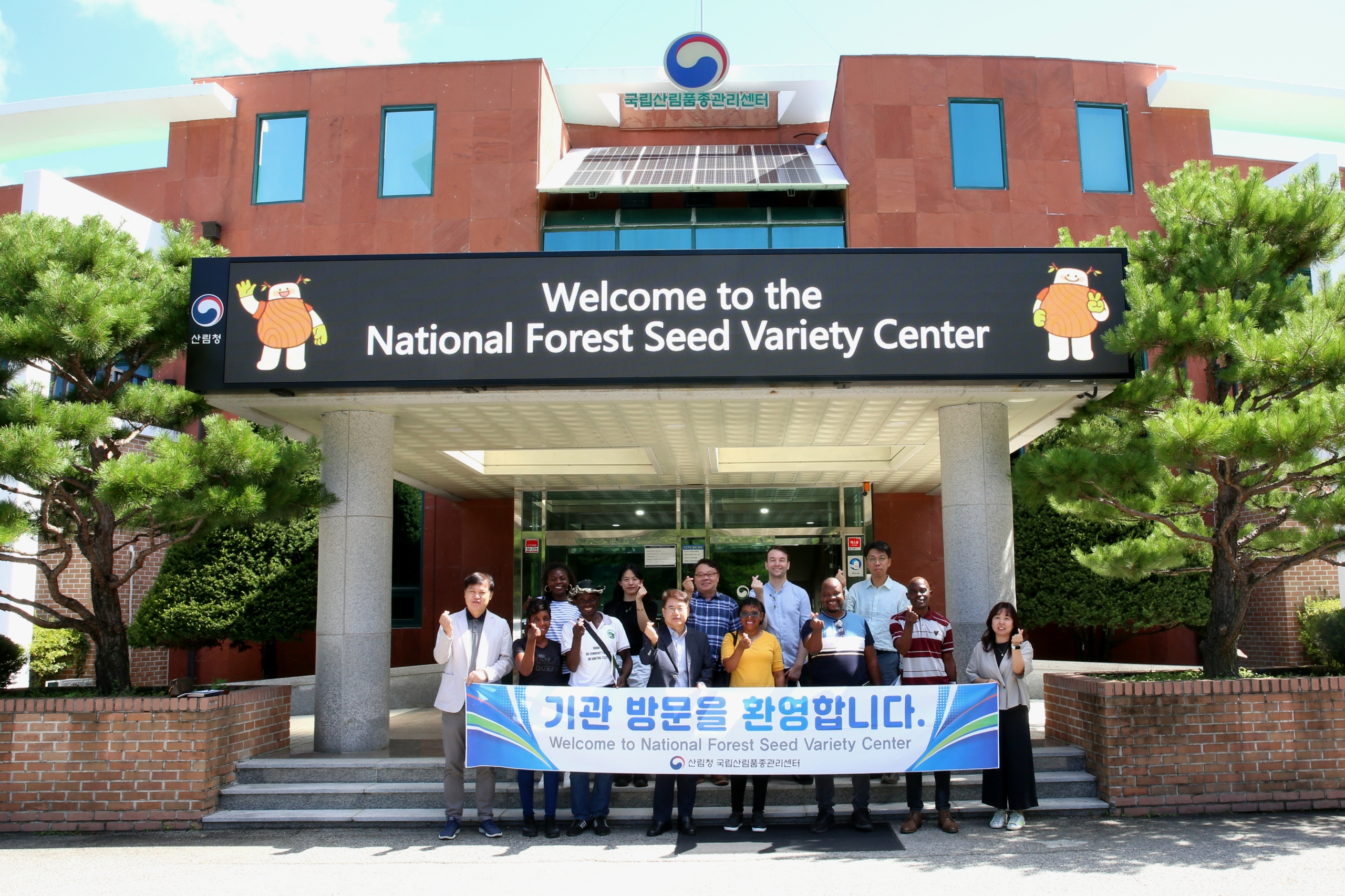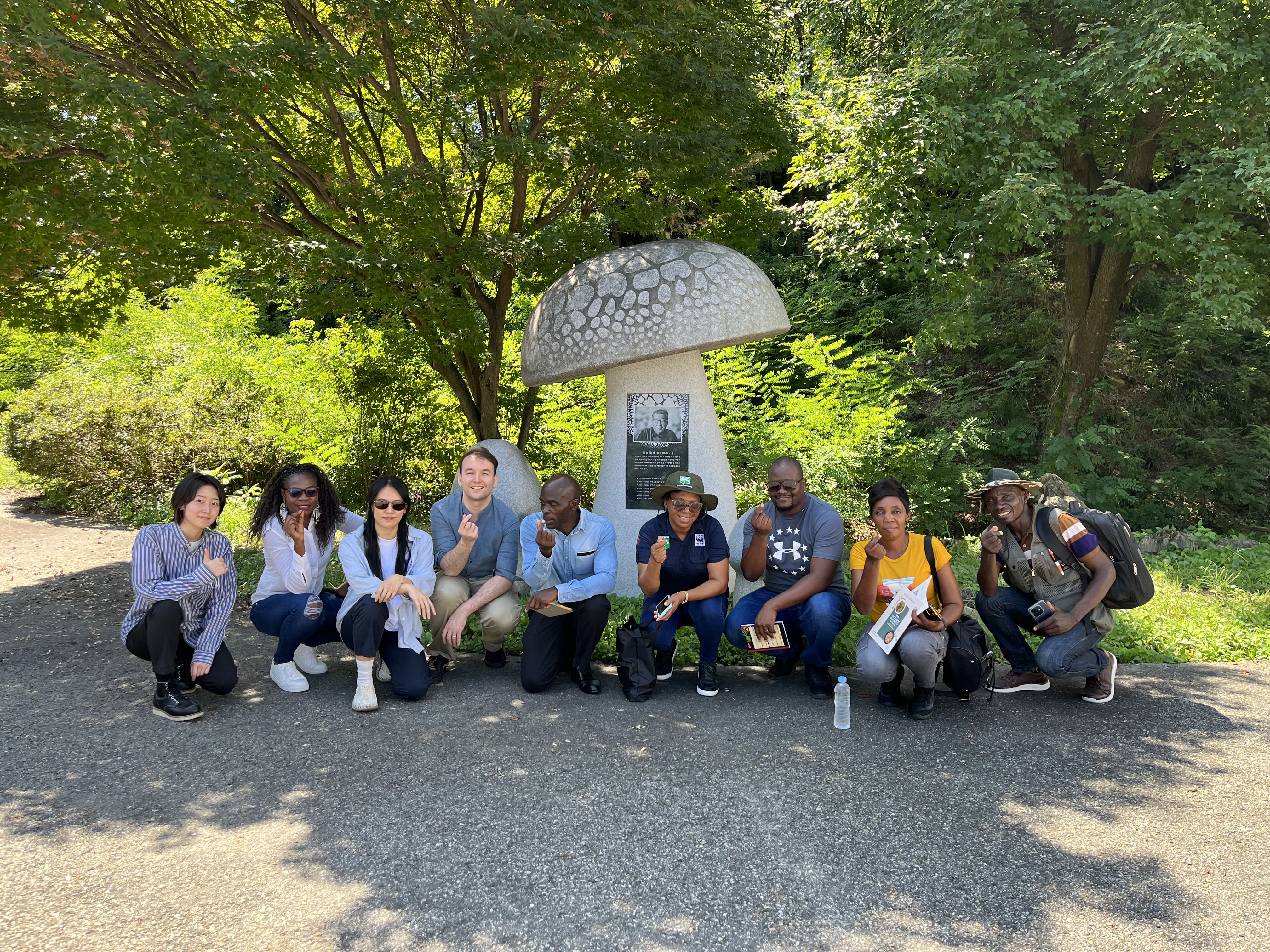Zambian delegation visits ROK to tackle deforestation through community-based forest management
August 31, 2024

From 26 to 30 August, UNDP Seoul Policy Centre (USPC) hosted a delegation from Zambia for a comprehensive study visit focused on community-based forestry management. As part of the USPC SDG Partnership project with Zambia, this initiative aimed to foster knowledge exchange and explore best practices in sustainable forestry management. The visit featured engagements with key partners, including the National Institute of Forest Science (NIFoS), Korea University, and other esteemed institutions in the Republic of Korea (ROK).
Zambia is rich in natural resources, particularly forests, which cover about 66 percent of its land area.* However, the country faces significant deforestation challenges, losing an estimated 172,000 hectares annually due to agricultural expansion, unsustainable charcoal production, and other factors.** To combat this, Zambia has introduced community-based forest management, a collaborative initiative involving the government, communities, and stakeholders. The UNDP Zambia Country Office and USPC’s SDG Partnership programme are providing technical and financial support, including through this study visit, to share ROK’s knowledge and experiences.
The visit commenced with a warm welcome from the USPC team and a visit to NIFoS. As a key institutional partner, NIFoS introduced the Zambian delegation to innovative research on forest fires and community-based forest management as well as the advanced methodologies and technologies employed in the ROK to manage and protect forest resources. Another significant highlight of the visit was the engagement with the Asian Forest Cooperation Organization (AFoCO) Headquarters, where the delegation gained insights into community forest programs and best practices from the ROK with developing countries.


The delegation’s visit to the Yongmun Nursery Center provided an in-depth look at high-quality seedling production and forest restoration techniques, crucial for Zambia’s successful reforestation efforts. By understanding the processes involved in seedling production, the delegation could appreciate the foundational role that nurseries play in sustainable forestry.

Delegates also visited the Baekdudaegan Global Seed Vault to learn about the conservation and management of wild plant seeds. By visiting a crucial repository for genetic diversity with the advanced techniques, they learned the importance of seed conservation in enhancing the resilience of forest ecosystems and preserving biodiversity.

In addition, the visit to the National Forest Seed Variety Center provided insights into developing and managing seed varieties for long-term sustainability of forest resources. There, the delegation learned about domestic forest resource varieties and seed production systems, providing a comprehensive understanding of the processes involved in maintaining forest biodiversity.

The delegation explored Korean techniques for mushroom cultivation at the National Forestry Cooperative Federation (NFCF) Forest Mushroom Research Institute. This visit showcased advanced methods in mushroom farming, which can be adapted to enhance sustainable forestry practices in Zambia. The institute’s research on non-timber forest products such as mushrooms highlights alternative livelihoods that can support forest conservation. This knowledge is particularly valuable for the Zambian context, where diversifying income sources can reduce pressure on forest resources.

Other than mushrooms, beekeeping also serves as a model for integrating economic activities with environmental stewardship, offering a sustainable livelihood option that can help protect Zambia’s forests. In this respect, an onsite visit to Yeoncheon District Beekeeping Association provided the delegation with insights into advanced beekeeping practices and sustainable honey production. This session highlighted the role of beekeeping in forest conservation and the potential for community-based initiatives to support sustainable livelihoods.

At Korea University, the delegation engaged in discussions led by Professor Woo Kyun Lee on the role of digital technologies in sustainable forest management. This session highlighted the importance of integrating modern technology into forestry practices to enhance efficiency and sustainability. Additionally, Professor Yowhan Son shared valuable insights on the historical governance of forest resources and successful reforestation cases, providing a comprehensive overview of the ROK’s journey towards sustainable forestry. The university’s focus on technological innovation and historical context underscores the multifaceted approach needed for effective forest management, offering insights for delegates on how to integrate technology into their forestry practices.

The study mission concluded with a South-South and Triangular Cooperation (SSTC) exchange with Mark Ramires, Programme Analyst in the Climate Action Team of the Philippines CO, who presented the highlights and lessons learnt from the just closed SDG Partnership project with USPC on sustainable forestry in the Philippines.
* Ministry of Lands, Natural Resources and Environmental Protection. (2014). National Forestry Policy. p. 1.
** Ministry of Green Economy and Environment. (2023). National Action Plan. p. 1.

 Locations
Locations



